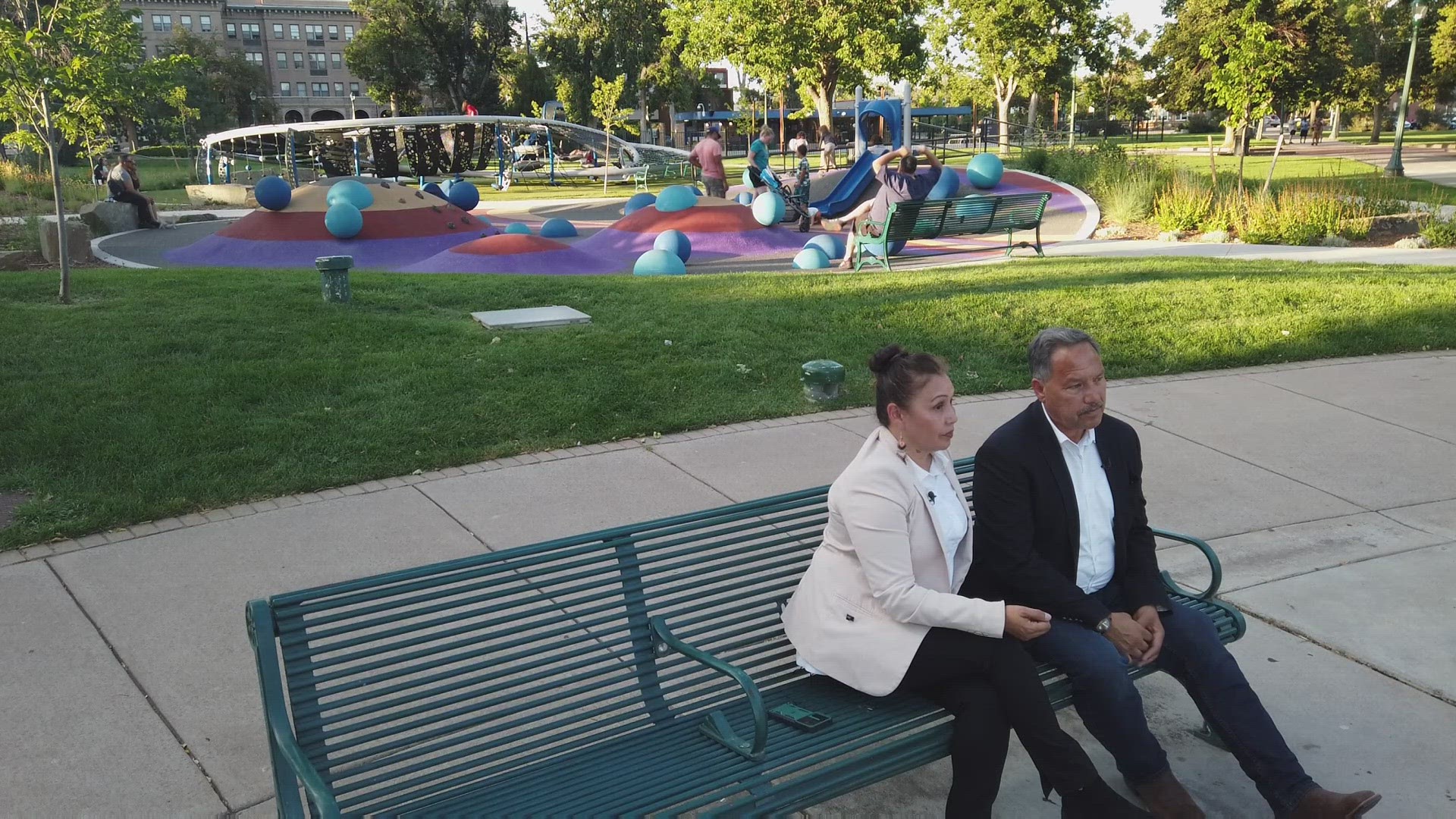DENVER — Aunt Lettie and Uncle Ponch are ready and waiting. They're waiting for their 4-year-old grand niece Juliet to join their family.
"So, we have her room. We've had her for two years already," Lettie said.
We are choosing to protect the full identity of Juliet. Ponch and Lettie are hopeful that she will be allowed to live in the room they've decorated with pictures of loved ones. They say their culture is rooted in family.
"It's a big family," Lettie said. "We don't need a reason or a holiday to get together."
Now, their family is fighting in court for the right to raise their nephew's daughter.
"She's our niece and we just want her to come back with her family. She belongs with us," Lettie said.
Juliet has been in the care of foster parents on and off since birth because her mom is estranged and her father has had problems with the law. The El Paso County Department of Human Services is recommending the foster family gets permanent custody, but Juliet's father wants his own kin to raise his daughter.
"The system puts guardrails, puts stops and barriers in front of them month after month after month," Annie Martinez, Ponch and Lettie's attorney, said.
Martinez stood on the steps of the Capitol Thursday along with representatives from the National Coalition for Child Protection Reform citing data that Colorado uses kinship care at a rate 30% below the national average. If you want see the full report click here.
"I do believe that one of the reasons that Colorado uses kinship care at a rate so much lower than the nation is because we are one of a handful of states that has codified rights for foster parents," Martinez said.
Colorado legislators did pass a law earlier this year with the aim of giving preference to kin over foster families.
"In the month it's been in effect, nobody knows how to use it in the courtroom," Martinez said.
Lee Freeman is the founder of Foster Alight, an advocacy group which supports foster care. Freeman said the new law paints too broad a brush for family placement. Freeman said sometimes placement with a foster family is better for a child versus an obscure relative who has never met the child in question.
He said if it takes a long time to find a family member, Freeman said that can cause attachment issues, especially for infants who have been with foster parents for an extended period of time.
Martinez said more should be done to ensure children remain connected to their culture.
"This child in any of these circumstances does not exist in a vacuum, they are a whole of their history, their culture, their heritage, everything their parents and aunts and uncles bring to the table to make who they are," Martinez said.
Ultimately, it's up to a judge to make the final decision in November.
"What we're afraid of is that they're, they're stealing her from us," Ponch said. "She'll never, ever know how. She'll never know her family, and she'll never know her language. They they're trying to take that away from her. And that's not right."
SUGGESTED VIDEOS: Latest from 9NEWS

